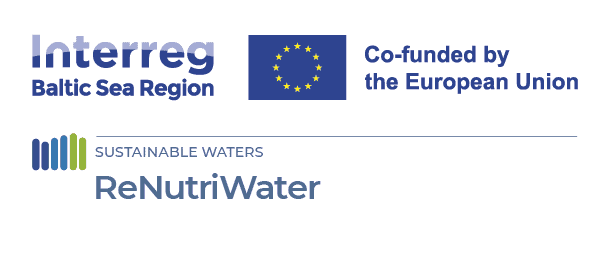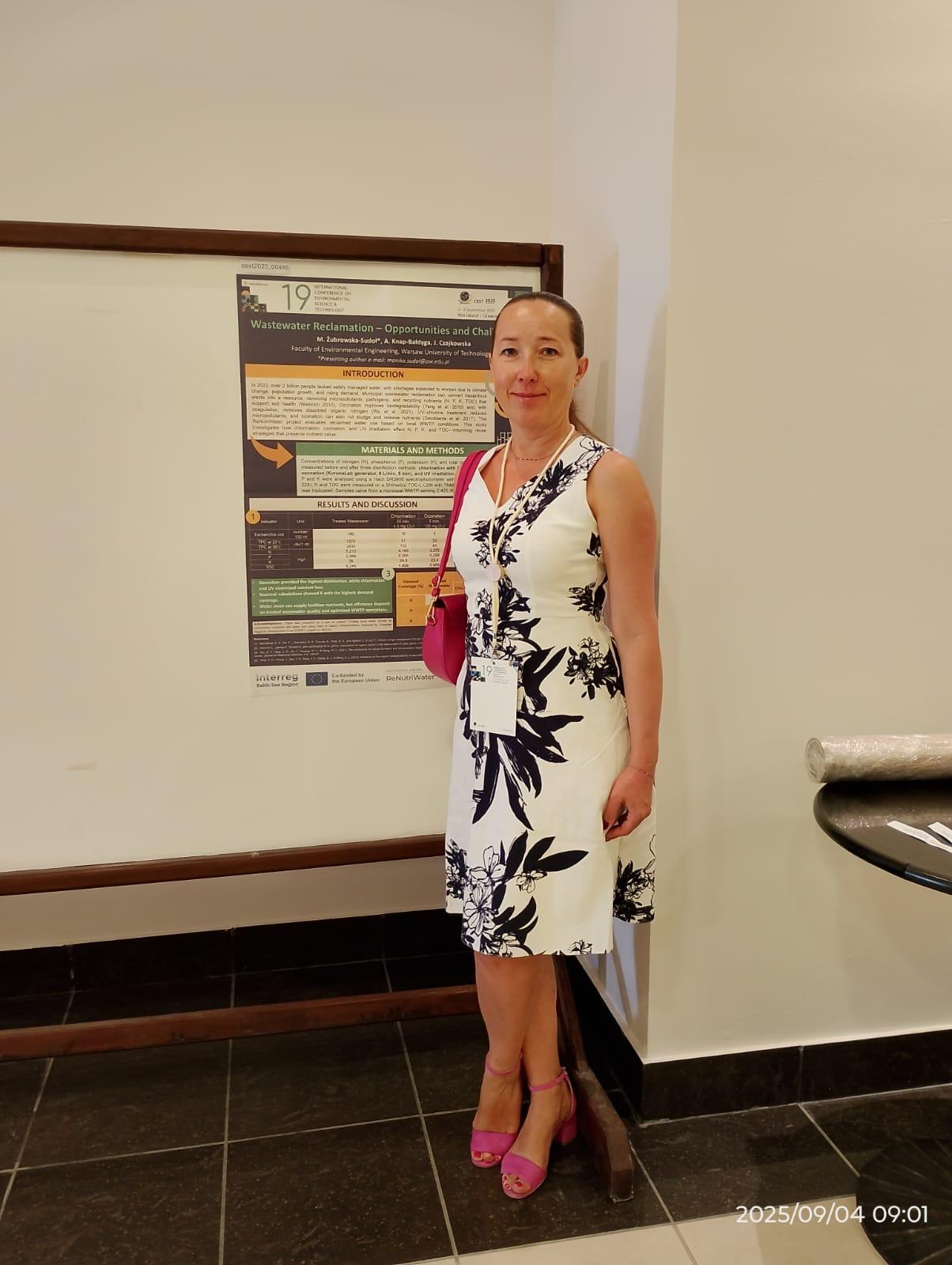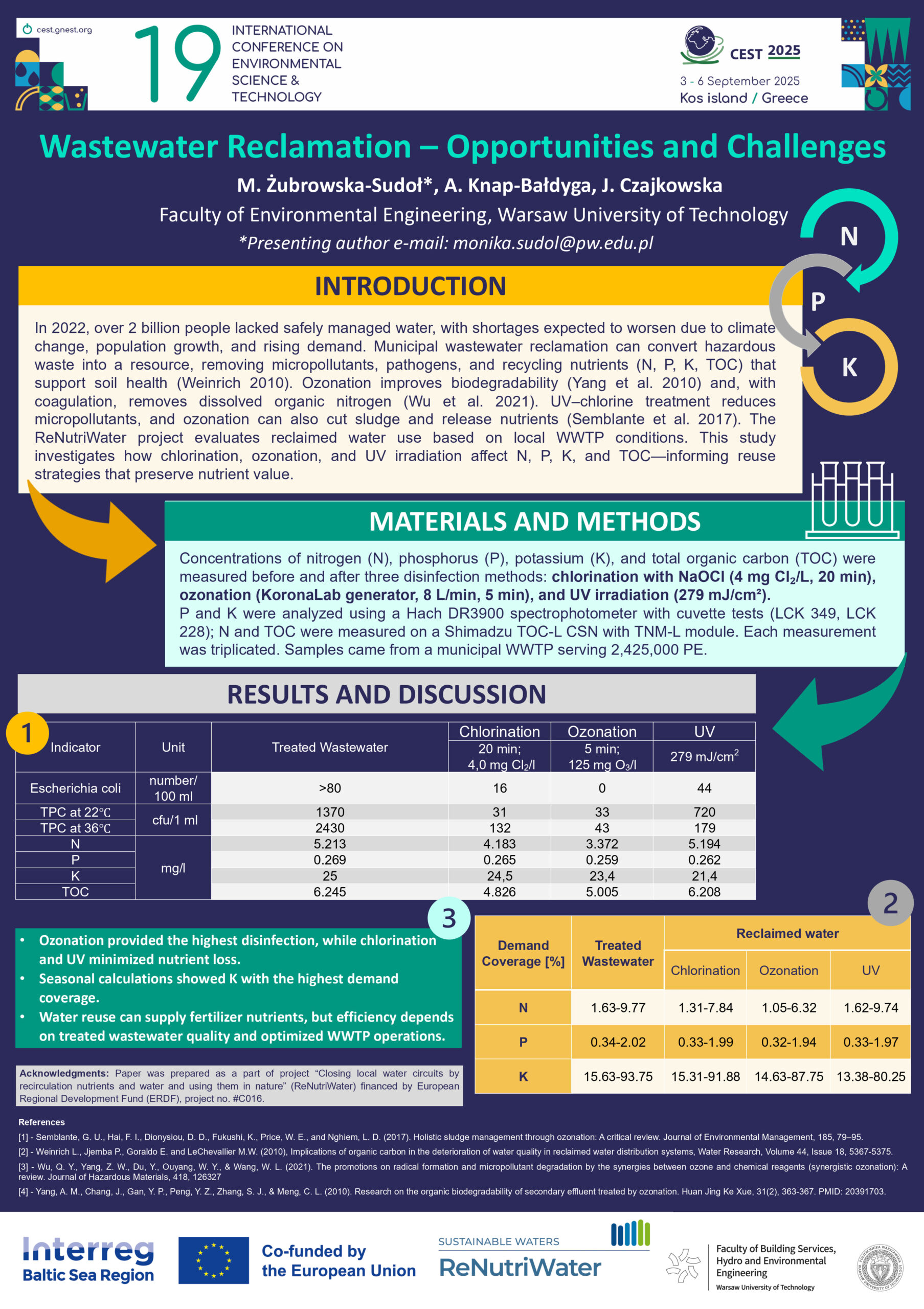
From Waste to Value: Study Confirms Potential of Wastewater Reuse for Water and Nutrient Recovery
09 October 2025
The team, consisting of Professor Monika Żubrowska-Sudoł, Alicja Knap-Bałdyga and Justyna Czajkowska, presented a poster entitled “Wastewater Reclamation – Opportunities and Challenges”. The presentation was delivered by Professor Żubrowska-Sudoł.
The poster presented how water scarcity is one of today’s most pressing global challenges. In 2022, more than two billion people lacked access to safely managed water, with shortages expected to worsen due to climate change, population growth and increasing demand. Municipal wastewater reclamation offers a way to transform a hazardous waste stream into a valuable resource. It can remove micropollutants and pathogens while also recycling essential nutrients such as nitrogen (N), phosphorus (P), potassium (K) and total organic carbon (TOC).
As part of the Interreg BSR funded ReNutriWater project, the WUT study investigated the effects of three disinfection methods: chlorination, ozonation and UV irradiation. Samples from a municipal wastewater treatment plant serving 2.4 million population equivalents were analyzed, and nutrient concentrations were measured before and after treatment using spectrophotometry and TOC/TN analysis.
The results showed that ozonation achieved the highest level of disinfection, effectively reducing microbial contamination. Chlorination and UV irradiation were better at preserving nutrient content, maintaining the agricultural value of the treated water. Seasonal calculations also revealed that potassium (K) provided the highest nutrient demand coverage. The findings highlight that wastewater reuse can supply both safe water and fertilizer nutrients, although efficiency depends on wastewater quality and the performance of treatment plants.
These findings directly support the goals of the ReNutriWater project, which aims to close local water cycles by recovering both water and nutrients for safe and sustainable reuse. By demonstrating practical ways to balance disinfection efficiency with nutrient preservation, the research provides valuable evidence that wastewater reclamation can play a key role in addressing water scarcity while promoting resource recovery for agriculture and the environment.







